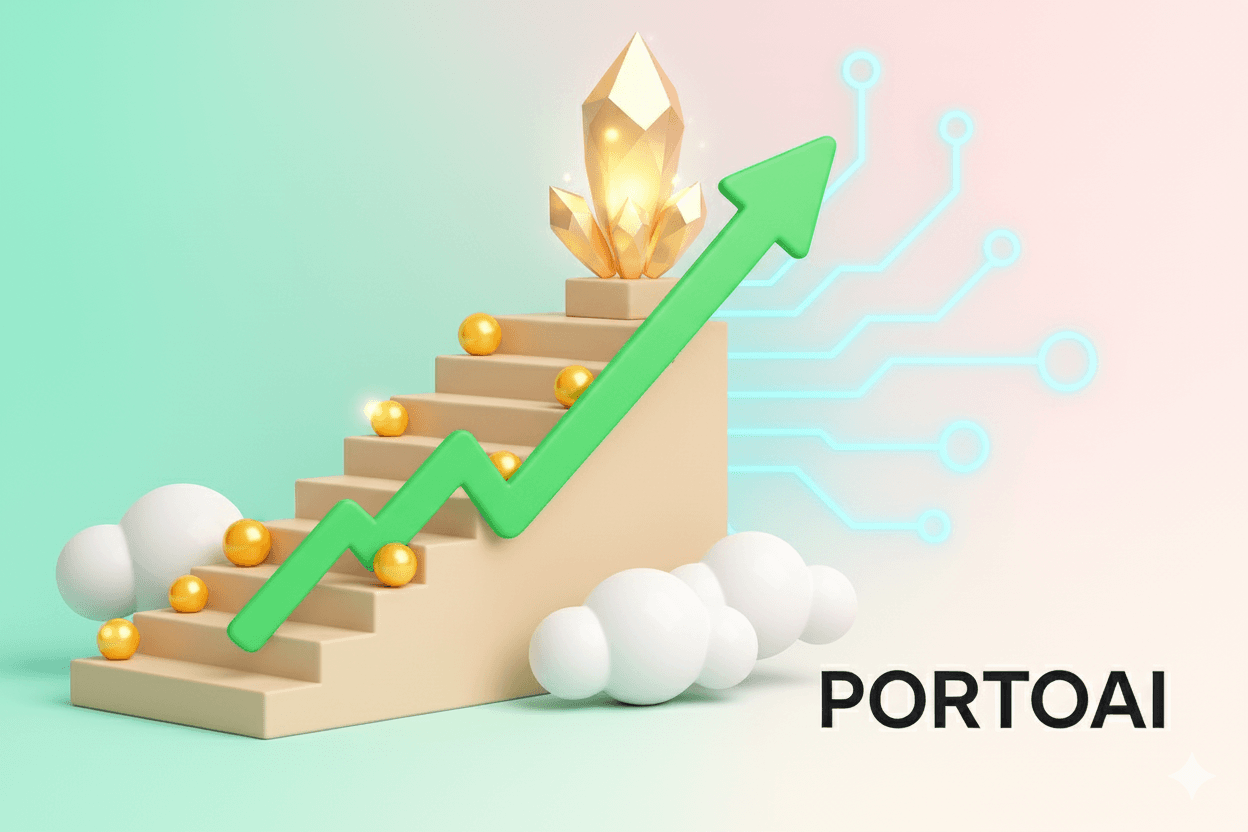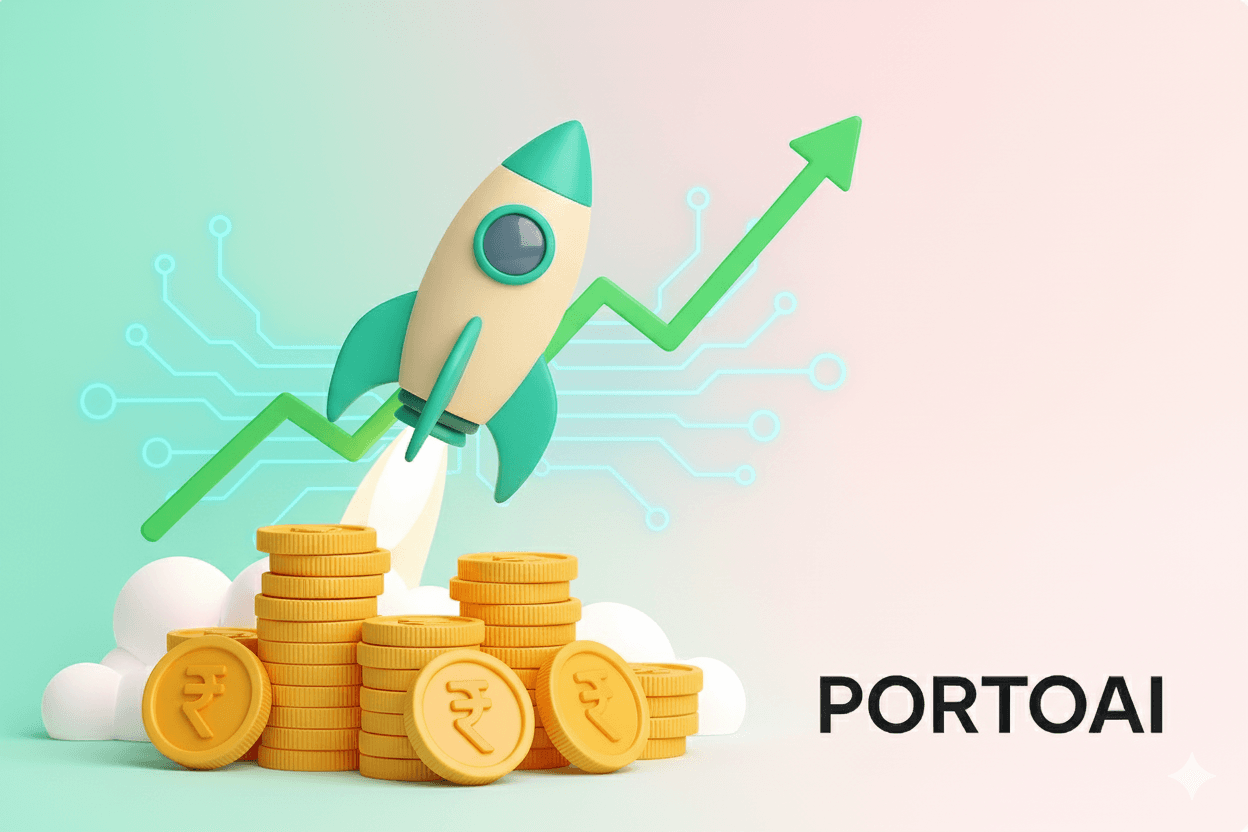Why Do Stock Prices Change? Key Factors Explained by AI

Venkateshwar Jambula
Lead Market Researcher
6 min read
•Published on September 13, 2024
•Why Do Stock Prices Change? Decoding Market Fluctuations with AI
As a discerning investor, understanding the fundamental drivers behind stock price movements is paramount. The constant flux in the stock market, often observed from second to second, isn't arbitrary. It's a complex interplay of numerous forces. While predicting market direction with absolute certainty remains elusive, a data-driven approach can illuminate the factors influencing price action.
At PortoAI, we leverage advanced AI to synthesize these complex market signals, providing you with the clarity needed for confident investment decisions. Let's dissect the core mechanics governing stock price changes.
The Fundamental Principle: Demand and Supply
At its heart, the stock market operates on the timeless economic principle of demand and supply. When more investors want to buy a particular stock (demand) than sell it (supply), its price tends to rise. Conversely, if supply outstrips demand, the price will fall. This dynamic is amplified by market sentiment and the perceived value of the underlying company.
Key Factors Influencing Stock Prices
Several categories of factors contribute to the ebb and flow of stock prices. Recognizing these drivers is crucial for strategic portfolio management and risk assessment. PortoAI's sophisticated algorithms analyze these factors continuously, offering a distinct advantage.
1. Company-Specific Factors
As a shareholder, you own a piece of the company. Therefore, events directly impacting a company's operations, financial health, or future prospects will inevitably influence its stock price. These include:
- Financial Performance: Earnings reports, revenue figures, and profit margins. Positive results often drive prices up, while negative ones can cause a decline.
- Future Earnings Guidance: Management's outlook on future profitability significantly sways investor expectations.
- Corporate Actions: Announcements of dividends, stock splits, rights issues, mergers, acquisitions, or buybacks can all impact share value.
- Product/Service Developments: The launch of successful new products or the recall of existing ones can create significant price movements.
- Management and Governance: Changes in leadership, significant hiring sprees, or major layoffs can signal shifts in company strategy or stability.
- Scandals and Legal Issues: Negative news, such as accounting irregularities or litigation, can severely damage a company's reputation and stock price.
2. Industry-Specific Dynamics
Factors affecting an entire industry can have a widespread impact on the stock prices of companies within that sector. For example:
- Regulatory Changes: New government policies, such as production-linked incentives or environmental regulations, can benefit or hinder an entire industry.
- Technological Disruption: The introduction of disruptive technologies can reshape an industry, benefiting early adopters and challenging incumbents.
- Competitive Landscape: The entry of a new, aggressive competitor can put pressure on existing players, affecting their market share and profitability.
3. Market Trends and Sentiment
Broader market trends, often characterized as 'bull' or 'bear' markets, can significantly influence stock prices irrespective of individual company performance. These trends are driven by collective investor psychology and economic outlook.
- Bull Market: Characterized by widespread optimism, strong economic growth expectations, and increasing investor confidence, leading to an overall upward trend in stock prices.
- Bear Market: Marked by pessimism, economic uncertainty, and declining investor confidence, typically resulting in a broad-based fall in stock prices.
These trends, often rooted in macroeconomic shifts, can persist for months. PortoAI's Market Lens helps investors identify and navigate these broad market cycles.
4. Economic and Geopolitical Factors
Macroeconomic conditions and global events form the bedrock upon which market movements are built.
- Geopolitical Events: Wars, political instability, natural disasters, and international trade disputes can create uncertainty, disrupt supply chains, and impact investor sentiment, leading to market volatility.
- Inflation (CPI): Rising Consumer Price Index (CPI) indicates increasing costs of goods and services. If wages do not keep pace, consumer spending power diminishes, potentially hurting corporate revenues and stock prices.
- Interest Rates (MPC): Decisions by Monetary Policy Committees on interest rates have profound effects. Higher rates increase borrowing costs for companies, potentially reducing investment and profitability. Conversely, they can make fixed-income investments more attractive relative to stocks. Financial services sectors, however, may benefit from rising rates.
- Gross Domestic Product (GDP): GDP is a key indicator of an economy's health. Strong GDP growth typically correlates with robust corporate earnings and positive market performance, boosting investor confidence.
Leveraging AI for Informed Decisions
Navigating these multifaceted factors requires sophisticated analytical tools. PortoAI's AI-native platform is designed to process vast amounts of data, identify subtle market signals, and present actionable insights. By understanding the 'why' behind stock price changes, and utilizing powerful AI-driven research, investors can move beyond speculation towards disciplined, data-backed decision-making. Empower your investment strategy with PortoAI.
Blog
Investment Insights and Tips
Explore our latest investment strategies and insights.

Stocks
Master Investment Psychology: Control Emotions for Smarter Stock Decisions
The Psychology of Stock Investment: Understanding Emotions That Affect Investment Decisions A stock market is a funny place – both the seller and buye...
Venkateshwar Jambula
November 7, 2024
•4 min read

Stocks
Power Grid India Stock: Analyzing PGCIL's Price Movements & Future
The Rise and Fall: Unraveling the Power Grid Corporation of India Stock Price The Power Grid Corporation of India Stock Price (PGCIL) has experienced ...
Venkateshwar Jambula
November 6, 2024
•10 min read

Stocks
Are Multibagger Stocks Still Possible in 2025? Your AI Guide
These 6 Multibagger Stocks Exploded in 2025 — Is Your Portfolio Still in 2022? Till June 2025, the benchmark Sensex has risen by around 4%, reflecting...
Venkateshwar Jambula
November 5, 2024
•11 min read

Stocks
Top 5 Indian Growth Stocks & Sectors for 2025: AI-Driven Insights
Top 5 Best Growth Stocks in India & Sectors to Watch in 2025 You see the market correction in late 2024 and early 2025 was driven by weak economic...
Venkateshwar Jambula
November 4, 2024
•9 min read